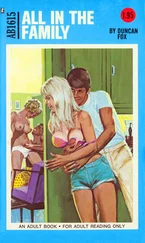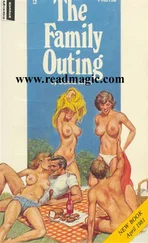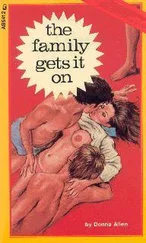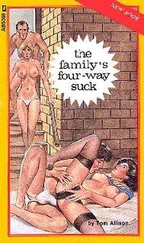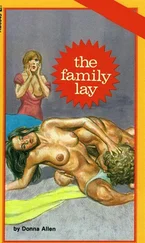“Lots of kennels do that, Olwen said. They give their dogs themed names: Christmas carols, ABBA songs, whatever.”
“I suppose Figgy Pudding is marginally better than The Winner Takes It All,” says Alex.
“Mum, I know you got him to make up for George being expelled. As if I’m going to forget about my best friend and love an animal instead! I’m so sad and friendless, I need a pet who can’t get away from me—that’s the only way I’ll ever not be lonely!”
“Not true, El,” says my husband and valiant protector. “That’s not the reason we have a dog. We have a dog because this Olwen character is an excellent saleswoman—”
“She gave him to me. I paid nothing.”
“—who correctly identified your mother as a gullible fool and served up some vague pronouncements about destiny and fate accordingly.”
I smile.
“What?” Ellen asks. “What is even remotely funny?”
“I think you’re right,” I tell her. “About my motivation—but it’s nothing to do with you. I’m the one who wants to forget about human beings and hang around with a puppy instead. Look at him.” I nod in Figgy’s direction. He’s moved over to the small mint-green door beside Ellen’s bed and seems to be trying to insert his front paw into the thin groove between it and the wall.
“That’s uncanny,” says Alex, watching him. “We buy a house with a tiny green door embedded in the wall, and then, lo and behold, we acquire a new family member for whom that door is exactly the right size. You see, El? Destiny.”
I haven’t finished expounding the advantages of dogs over people. “Would Figgy ever ask anyone to rewrite three hundred and sixty minutes of TV drama—an entire series—removing the very thing he’d forced you to spend six months weaving in there in the first place, that you’d always thought was preposterous, while denying he’d ever insisted on its inclusion?” I ask of nobody in particular. “Would he expel someone for not stealing a coat, then deny that person ever existed? It’s going to be so relaxing having him around, knowing he’ll never do anything that shitty and irrational. The worst he’ll do is wee on the floor and chew stuff.”
“He’d better not wee on my carpet,” says Ellen. Her voice sounds strange to me until I realize what’s changed: her anger’s gone.
“He should be okay for now,” I say. “He had an accident in the kitchen five minutes ago. Let’s hope he got it all out of his system.”
“You honestly didn’t buy him as a friend consolation prize for me?”
“I swear. He’s my new best friend, not yours.”
Ellen turns back to the mirror. Our reflected eyes meet, and she says, “I love George, Mum. I don’t only like him. He’s not just a friend. I love him.”
“I know, El.” Kind of a lie. I didn’t know. I do now.
“It’s not romantic love. I don’t fancy him.” She pulls a face. “You can love a friend as passionately as you love a romantic partner. That’s how much I love George. Even if I never see him again, I won’t stop loving him.”
“Passionately?” Alex queries.
“Ellen, I get it. I’m not sure Dad does, but I do.” Her intensity frightens me.
“I’m getting chucked on the pyre as Crap Oafish Dad, am I? After all I’ve done for this family.”
“I’m sorry for being horrible to you about Figgy, Mum. He’s cute. He looks like a gray fluffy sock.”
“So, next contentious issue,” says Alex. “Is Ellen going to school today or not?”
“Yes. I am.”
I decide to try a new tactic. “The police are coming this morning, El. It’d be good to have you here to tell them about George, school, everything that’s happened.”
“Why?” She looks alarmed. “I thought they were coming because of the phone calls.”
“They are. And you believe the calls and George’s expulsion are linked, don’t you?”
“I don’t know anything. I don’t want to talk to any police. If you make me, I’ll tell them it’s illegal to keep a child out of school who wants to go.”
“Ellen, calm—”
“No, Mum! I’m going to school today. I’ll go to my lessons and just . . . blend in.”
“Why? What are you afraid will happen if you don’t?”
“Justine, you’ve asked her that at least ten times. You’re browbeating her.”
“I don’t know what I’m scared of!” Ellen covers her ears with her hands, as if she can’t bear to hear what I might say next.
I feel sick.
“All I know is: If I behave normally, normal things might start to happen again. If I stay away, it’ll be obvious why. Whoever hates us at Beaconwood will hate us more because they’ll know we haven’t forgotten about the George business.” Ellen’s voice sounds shaky and constricted, as if there’s a hand inside her throat, choking her.
I can’t cry. It would only upset her more.
“They’ll know we haven’t forgotten, whatever we do,” says Alex. “No one forgets the kind of exchange Mum had with Mrs. Griffiths.”
“I need to go in and act like nothing’s happened,” says Ellen. “That’ll reassure school that we’re not planning to cause any trouble.”
“I’m planning to cause stacks,” I say. “Soon as I work out the specifics.”
“Mum, no!”
“You can’t just wail ‘No!,’ El. I don’t understand, and you won’t explain. If you think something’s wrong at Beaconwood, if you think someone there might be making these threatening calls, why isn’t the obvious answer never to go back there? There are other schools!”
“Justine, you’ve asked and asked. If she wanted to answer—”
“Because of George! What if he escapes and comes looking for me? On a weekday, he’d go to Beaconwood, wouldn’t he? That’s where he thinks I’ll be, so I have to be there. I know what you’re both thinking.”
Alex and I exchange a look. I am thinking about the word “escapes,” as uttered a few seconds ago by our daughter; I wonder if Alex is too.
“You’re going to say George wouldn’t turn up at school, having been kicked out,” says Ellen. “I thought that too at first, but then I thought of the bus. He could meet me at the bus stop one morning, just outside school grounds. I think that’s what he’s going to do, as soon as he can. I know him better than I know you, Mum—better than you and Dad know each other.”
Alex frowns. “That’s a big claim, El.”
“It’s true. You should have woken me up in time for the bus, Mum.”
“Why did you say ‘if George escapes,’ as if his home’s some kind of prison?” I ask her.
“Because it is. He’s not allowed to go anywhere, do anything, have friends. It’s prison without the official label.”
“Don’t his parents know you’re his friend?”
Ellen laughs. “No way. They’d go mad.”
I try to catch Alex’s eye, but he’s busy trying to pull one of Ellen’s balled-up socks out of Figgy’s mouth.
They would go mad, or they have gone mad?
What if George’s mother, Professor Anne Donbavand, is the person making the deranged phone calls?
“That’s why I didn’t tell you about George for so long,” says Ellen. “He made me promise. He said if his mum found out about our friendship, she’d lock him in a cupboard to stop him seeing me. She’s a freakoid. George is always saying he wishes he had a mum like you.”
I hear her, but I can’t take in what she’s saying. Something about her bedroom window has distracted me and provoked a flicker of recognition. As she was speaking, my attention snagged elsewhere, but on what?
It felt important.
Was it something I saw outside? I walk over and stare out. Everything looks normal: the grass sloping down to the river, the trees in our garden, the boats on the water, the wooded hillside studded with cottages.
Читать дальше


